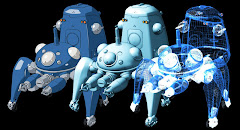
狛 in my Nelson Japanese Dictionary is listed:
Haku: lion-dog shrine guardians. Koma: part of ancient Korea. Koma inu: lion-dog (stone) shrine guardians
Koma inu. Are you in a coma? Are you so pleased, are you so happy, are you so sad? Do you care? Do you care too much? Is Cecelia Chung a half-caf zombie of some sort?
Inu. Speaking of inu, which is the "dog" of "lion-dog", I was watching InuYasha Ep 67 "Howling Wind of Betrayal" on Adult Swim and decided to write something here. This word 狛 is a blizzard of energy, a blizzard of adenosine tri-phosphate, or ATP, which is produced by our cells using sugar and oxygen. ATP is the basic building block of our metabolism, the reason we need sugar and oxygen in the first place.
During a blizzard of ATP, one perforce becomes bored with one's metabolism. But that is neither here nor there.
Exercises from Professor Accountable, the film professor who thinks film sucks
1 - The medical radical is used 3 times in the picture. What does this have to do with the hippocratic oath, and what does it have to do with the healing arts? And, why doesn't it really look anything like the Hippocratic Symbol?
2 - Kagome escapes to InuYasha World through a rectangular portal. The young woman at Norhaku's abode possesses a circular vision portal. Are these portals metaphors for the personal computer?
3 - In InuYasha, as in Pokemon, there are a group of earnest sincere seekers who can never seem to get enough of fighting with some "villains" who seem to have real problems to deal with. When these anime are seen from the perspective of NYPD Blue or a Humphrey Bogart movie, the moral universe is obverted and the "villains" seem protagonistic. Discuss.
3.1 - In this episode (67), Kagura sees InuYasha's hair transform from raven black to senior gray as the sun rises. Kagura says "I've seen you somewhere before." After Kagura disappears, Inu says "Hey you puny wolf, I hope you've learned your lesson. Never interfere in my fight with Noraku." Is this embarrassingly hostile statement from one of the heroes an example of "moral centrism" as expressed dramatically? Do anime soften the boundaries between dramatic good and evil by a recognizable, useful method? Please describe this method.
Keeping it real for anime geeks
Crying Nut "Myong Dong Call Ring", from their 5th album, of 2006
Seagull Screaming Kiss Her Kiss Her "Future or No Future" - a short video











